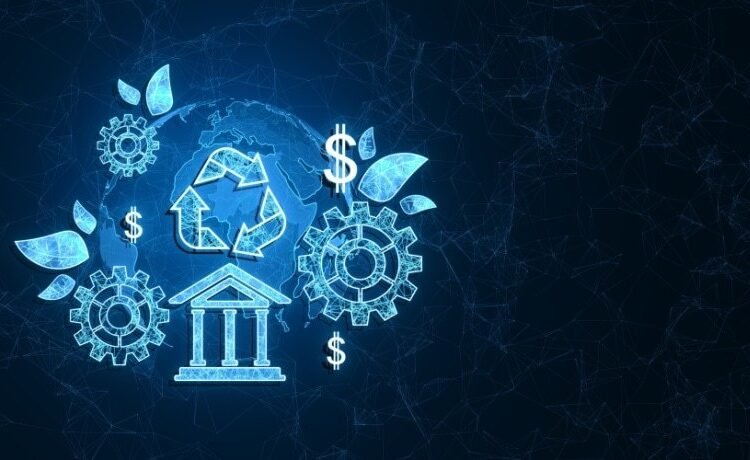
Cut Carbon, Save Brainpower: ESG Reset Now
In corporate sustainability, much attention is given to cutting carbon emissions and minimizing environmental impact. But what if the key to truly effective environmental, social, and governance (ESG) training strategies isn’t just about reducing our carbon footprint? What if, by addressing a hidden form of waste, knowledge waste, we can unlock far greater benefits for organizations and society?
What Is Knowledge Waste?
Knowledge waste refers to losing valuable insights, skills, and expertise due to outdated training methods and inefficient learning practices. In many organizations, ESG training programs often miss the mark because they rely on old-fashioned lectures or static materials that fail to engage learners. When employees do not retain or apply what they learn, the investment in training goes to waste.
Imagine a company spending thousands on ESG training, only to find that the lessons are quickly forgotten or never put into practice. This wasted potential is what we call knowledge waste and it’s a paradox when compared to the intense focus on cutting carbon emissions. While many organizations invest heavily in technology and processes to measure and reduce carbon, they overlook how improved training could transform their ESG impact.
The Paradox Of ESG Training
Traditionally, ESG efforts focus on environmental targets like reducing energy use, cutting waste, and lowering emissions. However, the true power of ESG lies not only in environmental improvements but also in empowering employees with the right knowledge and skills. Here’s where the paradox comes in:
- Carbon cutting vs. knowledge efficiency
While cutting carbon is essential, inefficient training leads to lost opportunities. When employees struggle to grasp or apply ESG principles, the organization loses out on the chance to drive real change. In other words, reducing carbon is important, but reducing knowledge waste can lead to more sustainable long-term improvements. - Investment in training vs. outcome
Companies invest in training hoping to see a behavior change. But if the training is not engaging or relevant, employees won’t change their habits leading to a gap between investment and outcome. Reducing knowledge waste means making every training dollar count by ensuring that the learning sticks and translates into action.
Why Reducing Knowledge Waste Is Critical
Improved Employee Engagement
Modern ESG training strategies that focus on interactivity such as microlearning modules, gamification, and real-world case studies can hold employees’ attention much better than traditional lecture-style sessions. When training is engaging, employees retain more information, and the likelihood of applying new skills on the job increases.
Greater Efficiency In ESG Initiatives
When employees are well-trained, they can better identify risks and opportunities related to ESG. This means faster implementation of effective strategies, from streamlining resource use to improving social responsibility practices. In short, reducing knowledge waste makes ESG initiatives more efficient and impactful. When employees are well-trained, they can better identify risks and opportunities related to ESG. This means faster implementation of effective strategies, from streamlining resource use to improving social responsibility practices. In short, reducing knowledge waste makes ESG initiatives more efficient and impactful.
Enhanced Corporate Culture
Knowledge waste often signals that employees are not connected with the company’s sustainability goals. By refreshing ESG training strategies, companies can foster a culture of continuous learning and improvement. This creates an environment where every team member understands their role in driving positive change.
Better ROI On Training Investments
When training is effective, organizations see a return not only in reduced carbon emissions but also in innovation and improved operational practices. A well-informed workforce can lead to smarter decision-making, better risk management, and ultimately, a stronger bottom line.
Actionable ESG Training Strategies To Reduce Knowledge Waste
To combat knowledge waste, companies must rethink their ESG training methods. Here are some strategies that can help:
- Adopt microlearning modules
Break down complex ESG topics into short, focused lessons that are easy to digest. For example, a five-minute video on sustainable resource management can be far more effective than a one-hour seminar. - Leverage gamification
Add elements like points, badges, and leaderboards to make learning interactive and fun. Gamification not only increases engagement but also motivates employees to apply ESG principles in their daily work. - Use real-world case studies
Share success stories and practical examples of how ESG initiatives have made a difference. Whether it’s a small business cutting waste or a large corporation implementing a green policy, real-world examples make the training relatable and actionable. - Incorporate interactive workshops
Instead of relying solely on digital modules, consider interactive sessions where employees can discuss challenges and brainstorm solutions together. This collaborative approach encourages deeper understanding and retention. - Personalize learning paths with Artificial Intelligence (AI)
Use AI-driven platforms to tailor training content based on individual needs and learning styles. Personalized learning paths ensure that each employee receives the most relevant information, reducing the likelihood of knowledge being lost. - Regularly update training content
ESG is a dynamic field, and training materials must evolve to reflect the latest standards and practices. Regular updates prevent the content from becoming outdated and ensure that employees are always learning the most current practices. - Implement continuous feedback mechanisms
Use surveys, quizzes, and assessments to gather feedback on training sessions. This not only helps in understanding what works but also allows for quick adjustments to improve future training efforts.
Effective ESG Training
While the focus on cutting carbon is essential, the real challenge lies in preventing valuable insights from slipping away through ineffective training. Engaging eLearning training for sustainability goals can drive lasting behavioral change. This reinforces the idea that reducing “knowledge waste” may be just as critical as reducing carbon emissions.
The Long-Term Benefits Of Reducing Knowledge Waste
By prioritizing strategies that reduce knowledge waste, companies can create a smarter, more agile workforce. Here’s what to expect:
Stronger ESG Outcomes
With better training, employees can drive more effective sustainability initiatives resulting in tangible improvements in environmental, social, and governance metrics.
Innovation In ESG Practices
A well-informed team is more likely to experiment with new ideas and find creative solutions to sustainability challenges, pushing the entire organization forward.
Enhanced Reputation
Companies known for effective ESG training are seen as industry leaders in sustainability. This not only improves brand reputation but also attracts top talent and investors.
Competitive Advantage
In a market where sustainability is increasingly linked to success, reducing knowledge waste can be the key differentiator that sets a company apart from its competitors.
Conclusion
The ESG training paradox challenges us to look beyond the obvious goal of cutting carbon. While environmental targets remain important, the real opportunity lies in reducing knowledge waste. By adopting innovative ESG training strategies, organizations can empower their employees, drive smarter decisions, and achieve sustainable success.
The time has come to shift the focus from just cutting carbon to ensuring that every training session counts. In doing so, businesses can unlock a hidden potential that not only benefits the environment but also fuels long-term growth and resilience.















